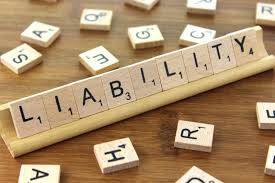Law > Civil Laws > Transfer of Property Act > Liabilities of Seller
The primary aim of laying down the rights and duties of the seller and the buyer in the case of sale is to ensure fair dealings, and as far as possible, to minimize fraud and waste of the property. In this article, we shall discuss the liabilities of seller.
Liabilities of Seller Before Completion of Sale:

Liability to Reveal Fault or Material Defects:
Section 55 Clause (1) Subclause (a) lays down that the seller is bound to disclose to the buyer any material defect in the property or in the seller’s title thereto of which the seller is, and the buyer is not, aware, and which the buyer could not with ordinary care discover.
An omission to make such disclosure amounts to fraud. The defects in the title include encumbrance or charge on the property, the existence of an easement, and restrictive covenants, etc. The defects in property may include a right of way and existence of nuisance in the neighbourhood.
In Flight v. Booth (1834) 1 Bing NC 370 the Court opined that it is necessary that the defect should be a material defect about which a buyer had known he would have not purchased that property.
In Ganpat Ranglal v. Mangilal Hiralal, AIR 1962 MP 144 case, the Court held that the seller is not bound to disclose such faults which are really known by the buyer or otherwise he is in the know of the information. Court further opined that to attract the provisions of Section 55(1)(a) two conditions are necessary: firstly, that the buyer should not be aware of the existence of the defect in the title; and, secondly, that he could not with ordinary care discover the defect. So far as the first condition is concerned, although the applicant vendor in his written statement pleaded that the buyer was aware of the existence of the mortgage, there is no proof of this fact and it must be assumed that the buyer was not aware of the defect. However, the second condition is not satisfied inasmuch as the buyer could have known about the encumbrance by making inquiries in the office of the Registrar. Section 55(1)(a) of the Transfer of Property Act has, therefore, no application to the present case.
In RL Pinto v FF Menezes AIR 2001 Kant 141 case, the Court held that the primary duty of the seller is to convey a good title to the buyer and therefore, he is bound to disclose a defect in the title if any.
In Ratanlal v Nanabhai AIR 1926 Bom 175 case, the Court held that the onus of showing a failure to disclose a defect in the title is on the buyer.
To Produce Title-Deeds for Inspection::
Section 55 Clause (1) Subclause (b) lays down that the seller is bound to produce to the buyer on his request for examination all documents of title relating to the property which are in the seller’s possession or power.
The seller is bound to produce all the documents demanded by the buyer for his examination. Buyer can ask for documents for his protection. The documents can be examined at the seller’s place or at the buyer’s place. If the buyer does not demand such documents for examination, the seller is in no obligation to show it to the buyer. If the documents are not examined by the buyer, then the Court presumes that the buyer is satisfied with the title of the property. If the buyer does not inspect title deeds, he would be fixed with the constructive notice of any defect in the seller’s power of transfer if it is found later on.
In Mathuri Bawa v. Prafulla Routray, AIR 2003 Ori 136 case, the Court held that It is no longer res integra that existence of a joint family does not raise a presumption that it owned properties jointly. Once there has been an admission with regard to the division of property no presumption of jointness shall thereafter arise. Mere entry in the record of right showing names of predecessors-in-intent of vendor and vendee will not be conclusive to draw a conclusion that suit property was joint family property, the vendee will derive indefeasible right by virtue of sale-deed from the vendor.
To Answer Questions as to Title:
Section 55 Clause (1) Subclause (c) lays down that the seller is bound to answer to the best of his information all relevant questions put to him by the buyer in respect to the property or the title thereto.
As the buyer is acquiring the ownership from the seller, the buyer in his interest must get completely satisfied about ownership rights of the seller and his capacity to transfer the property. In such case only examining the documentation by the buyer is not sufficient. He may have some doubts, he is supposed to ask them to the seller and the seller is bound to answer all these questions related to the property.
In the case of Laxmidas & Company v. D.J. Tata case it has been held by the Mumbai high court that if the seller does not answer for such questions then the contract may be rescinded by the buyer.
To Execute Proper Conveyance:
Section 55 Clause (1) Subclause (d) lays down that it is duty of seller that on payment or tender of the amount due in respect of the price, to execute a proper conveyance of the property when the buyer tenders it to him for execution at a proper time and place.
This is done by the signing of the sale deed or putting a thumb impression on the sale deed by the seller. The subclause shows that the duties of the seller and buyer are reciprocal. The buyer should make payment and the seller should execute the conveyance. The Subclause says it should be done at proper place and at the proper time. The Subclause does not clarify what is meant by proper place and at the proper time. It is presumed that it can be decided by mutual agreement between the buyer and the seller.
In Jamshed v. Burjorji, AIR 1934 Bom 1 case, the Court held that the conveyance must be within a reasonable time after tender of price. In case there is no stipulation of fixing the type of execution of the conveyance and seller makes unreasonable delay in executing conveyance, the proper course is to give the notice to make time as the essence of the contract.
To Take Care of Property and Title Deeds:
Section 55 Clause (1) Subclause (e) says that it is duty of seller that between the date of the contract of sale and the delivery of the property, to take as much care of the property and all documents of title relating thereto which are in his possession as an owner of ordinary prudence would take of such property and documents.
Between the date of the contract of sale and date of actual delivery of property, the property remains with the seller. Since the seller has already executed a conveyance in the name of the buyer, the seller holds the property as the trustee of the buyer. During this period the seller has to take care of the property and all the relevant documents related to property. If the seller fails to protect them, he will have to compensate the buyer for the loss.
To Pay Outgoings (Public Charges and Rent Accrued):
Section 55 Clause (1) Subclause (g) says that the seller is bound to pay all public charges and rent accrued due in respect of the property up to the date of the sale, the interest on all encumbrances on such property due on such date, and, except where the property is sold subject to encumbrances, to discharge all encumbrances on the property then existing.
This clause clarifies that before the completion of the sale, the seller has to pay all outgoings on the property like rent, revenue, taxes, etc. up to the date of the sale. Unless there is the contrary intention, the seller must discharge all the encumbrances, if there are any on the property. The buyer has a right to require the seller to produce evidence that the property is free from all encumbrances. This liability of seller continues before the completion of the sale and even after completion of the sale.
In Nathu Khan v. Buxto Nath, AIR 1922 PC 176 case, the Court held that where the seller does not pay the outgoings and the buyer subsequently pays them, then the buyer becomes entitled to reimbursement by the seller.
Liabilities of Seller After Completion of Sale:
To Give Possession of Property:
Section 55 Clause (f) Subclause (f) lays down that the seller is bound to give, on being so required, the buyer, or such person as he directs, such possession of the property as its nature admits.
The seller is supposed to give the possession of the property to the buyer or to his authorized agent whenever the buyer requires. The actual delivery of property depends on the nature of the property. In the case of tangible immovable property, physical control is to be given to the buyer. While in case of intangible movable properties the delivery of possession is symbolic. Actual possession is not possible in the case of incorporeal rights such as a right to a fishery, a right of way, etc. The possession should be given after transfer of ownership to the buyer at the date of execution of the sale deed if there is no contract to the contrary.
Implied Covenant for Title:
Section 55Clause (2) lays down that the seller shall be deemed to contract with the buyer that the interest which the seller professes to transfer to the buyer subsists and that he has power to transfer the same: Provided that, where the sale is made by a person in a fiduciary character, he shall be deemed to contract with the buyer that the seller has done no act whereby the property is encumbered or whereby he is hindered from transferring it. The benefit of the contract mentioned in this rule shall be annexed to, and shall go with, the interest of the transferee as such, and may be enforced by every person in whom that interest is for the whole or any part thereof from time to time vested.
A covenant is a legal agreement between two or more parties. It is normal practice for the seller to provide covenants for title, in standard form, by selling with “full” or “limited” title guarantee, in accordance with the Law of Property (Miscellaneous Provisions) Act 1994. The effect of this wording is that, following completion, the buyer can sue the seller for breach of the title guarantee. The seller will normally sell the property with full title guarantee unless the seller is a trustee, personal representative or mortgagee, in which case he will normally sell the property with limited title guarantee.
In Raghunathan v. Chellammal, 94 LW 755 and B. Kutpuddin vs Zuleika Bibi (1997) IMLJ 15 cases, the Courts held that Section 55(2) of the Act makes it clear that the benefit of covenant for the title runs with the land and is enforceable by the subsequent purchasers of the land and if the buyer resells to several purchasers, each of the purchasers is entitled to sue on the covenant in respect of his part.
In N.Narasingarayadu v. N. Ankineedu, AIR 1962 A.P. 192 case the Court held that under Section 55(2), every sale for consideration carries with it a covenant for the title.
In Tavvala Veerabhadra Rao v. Bonam Venugopala Rao, 1997 (4) ALT 713 case, there was a warranty of title Under Section 55(2) of the Transfer of Property Act.
Previous Topic: Sale of Immovable Property (S. 54)
